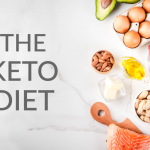There’s a reason why people love fresh juices from their local juice bar, and it’s not just because they’re delicious. Freshly pressed juices, especially those made with cold-pressed juicers, are actually better than those available in bottles or cans. Let’s take a look at what sets cold-pressed juice apart, and if it’s worth the higher price tag.
The difference between cold-pressed and regular juice

If you’ve been wondering about the difference between cold-pressed juice and regular juice, we have the answers for you! Cold-pressed juice is made by crushing fruit or vegetables and extracting the juice from the pulp. The process is done at a very low temperature, so the juices retain their vitamins and minerals. This means that cold-pressed juice is packed with all the juicy goodness of fresh fruits and vegetables.
The process of cold-pressing also helps keep the vitamins, minerals, and enzymes in the juice intact as opposed to regular juicing methods which can cause them to be lost during processing. Additionally, cold-pressed juices are often higher in antioxidants and other beneficial compounds than regular juice. These compounds can help boost immunity and overall health.
What does cold-pressed really mean?

Cold-pressed juice has become increasingly popular in recent years, with many people touting its health benefits. But what does cold-pressed really mean? Cold-pressed juice is produced by using a hydraulic press to extract juice from fruits and vegetables, without the use of any additional heat or oxygen. This helps preserve more of the nutritional content in the juice, while also keeping it juicy and delicious.
Unlike most juices that you buy in stores, cold-pressed juices contain no added sugars, preservatives, artificial colors or flavors. This makes them a healthier choice as they contain all-natural ingredients that are much better for your body. Cold-pressed juices are also richer in vitamins and minerals due to the fact that more of the natural content is retained in the production process. Since the heat generated during traditional juicing can degrade these nutrients, cold-pressed juices have the benefit of containing more nutritional content.
The benefits of cold-pressed juice

Cold-pressed juice is becoming increasingly popular as more people look for natural, nutrient-rich drinks. Cold-pressed juice is made from fruits and vegetables that have been crushed and then pressed with a hydraulic press to extract their juice. This type of juicing preserves more of the nutritional value of the fruits and vegetables than traditional juicing methods, making it a more health-conscious choice.
One of the main benefits of cold-pressed juice is that it contains more vitamins and minerals than its traditional counterpart. Since there is no heat involved, many of the delicate nutrients in fruits and vegetables are preserved. Additionally, cold-pressed juice can contain up to five times more antioxidants than other types of juice, making it a powerful detoxifying agent.
Another benefit of cold-pressed juice is that it has less sugar than traditional juice. The hydraulic press process extracts the juice without extracting much of the natural sugars found in fruits and vegetables. This means that cold-pressed juices often have less calories and less sugar than their traditional counterparts, making them a healthier option for those watching their weight or blood sugar levels.
Overall, cold-pressed juice can be an excellent choice for those looking for an energizing and healthful beverage. With higher levels of vitamins and minerals, fewer calories, and an incredible taste, it’s no wonder that cold-pressed juice is becoming a popular choice among health-conscious individuals.
The drawbacks of cold-pressed juice

When it comes to cold-pressed juice, there are some drawbacks that consumers should be aware of. First, because cold-pressed juice is made using a hydraulic press to extract the juice from fruits and vegetables, it can often be more expensive than regular juice. This is due to the extra time and equipment required for the process.
Also, since cold-pressed juice does not use any additional ingredients such as sugar or preservatives, the shelf life of the product is much shorter than regular juices. This means that cold-pressed juices must be consumed within a few days of purchase. Finally, since the produce used in cold-pressed juices is not cooked or heated, it is possible that some of the beneficial nutrients may be lost during the juicing process.
For these reasons, it is important to do research before making the decision to purchase cold-pressed juices.
Is cold-pressed juice worth the extra cost?
When it comes to juice, cold-pressed juice is all the rage. But what does cold-pressed actually mean? And is it really better for you than regular store-bought juice?
The term cold-pressed refers to a process that uses hydraulic pressure instead of heat to extract the juice from fruits and vegetables. This method helps retain more of the vitamins, minerals, and enzymes found in the produce, making it more nutrient-rich than store-bought juices. Cold-pressed juices are also free of added sugars and preservatives, so you can be sure that you’re getting an all-natural product.
In addition to the health benefits, cold-pressed juices are often more flavorful than store-bought juices. The cold-pressed process helps bring out the natural flavors of the produce, so you get a brighter, fresher taste. Though cold-pressed juices may cost more than store-bought juice, many people find that the additional cost is worth it for the health benefits and fresh flavor. If you’re looking for a healthier, more flavorful alternative to traditional juice, cold-pressed juice may be the perfect choice for you.

Are there hot-pressing juicers then?
What is ‘cold-pressed’ juice and is it really better than juice made from hot-pressed juicers? Well, let’s take a closer look at the differences between cold-pressed and hot-pressed juices to help you decide.
Cold-pressed juices are made by crushing fruits and vegetables at low speeds with hydraulic presses, resulting in a more nutrient-dense and flavorful juice. The lower temperatures maintain the living enzymes, vitamins, minerals, and other beneficial nutrients in the juice that can be lost when using hot-pressed juicers. In comparison, hot-pressed juicers use high speed blades which heat up the ingredients. This heating process kills off beneficial enzymes, vitamins, and minerals, resulting in a less nutrient-dense juice. The high temperatures also result in a less fresh-tasting juice.
However, it’s important to note that not all cold-pressed juices are necessarily healthier than hot-pressed juices. If a cold-pressed juice is processed or contains added sugars or preservatives, it could be less healthy than a hot-pressed juice. It’s always important to read the label and look for organic or natural options when shopping for cold-pressed juice.
Ultimately, whether or not cold-pressed juice is better than hot-pressed juice is up to you to decide. Both types of juices have their benefits, so it’s important to do your research and find out which option best meets your needs.












